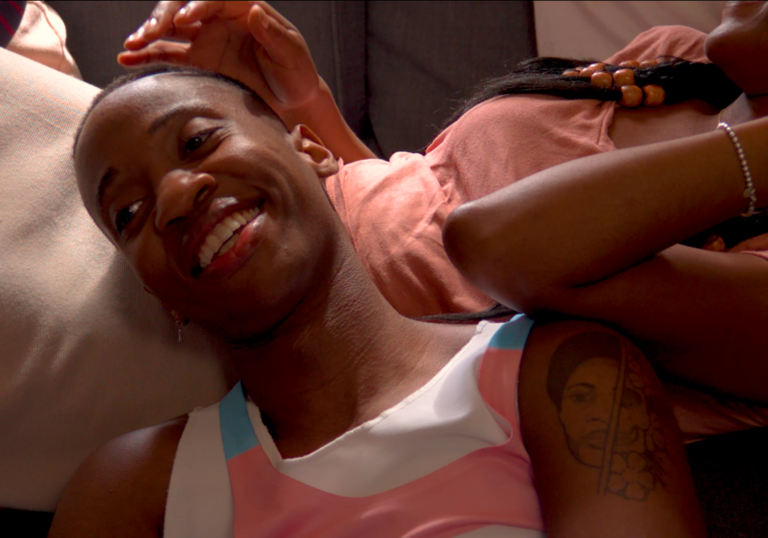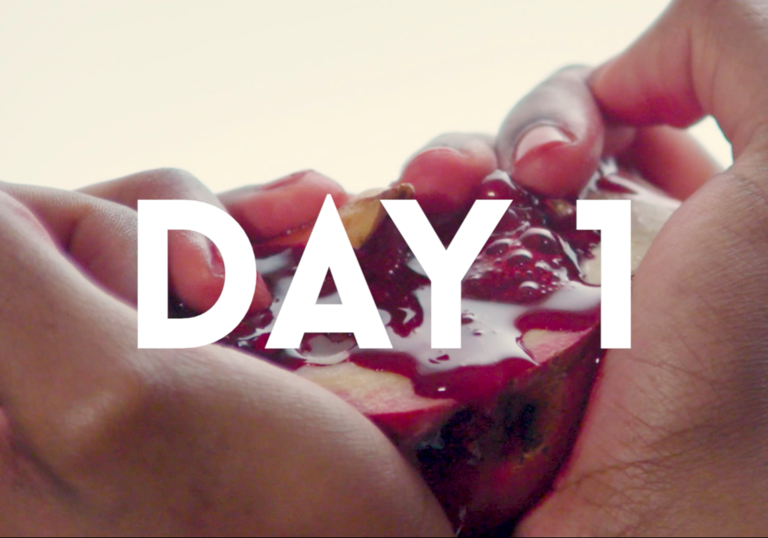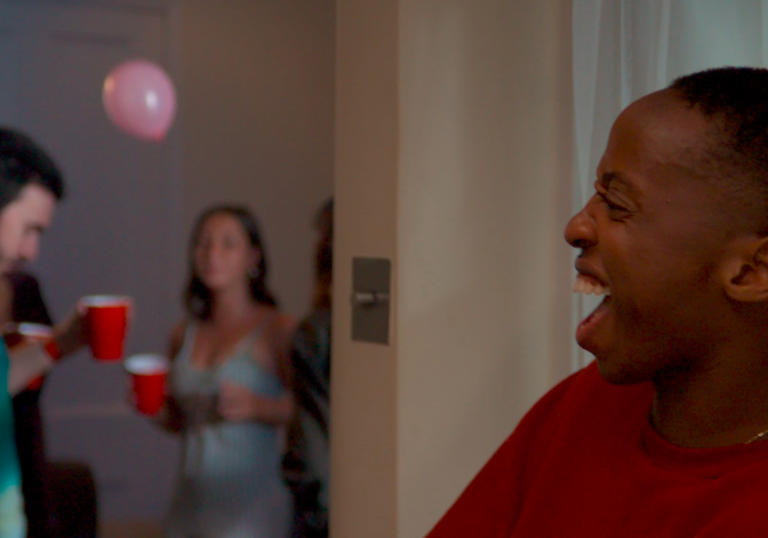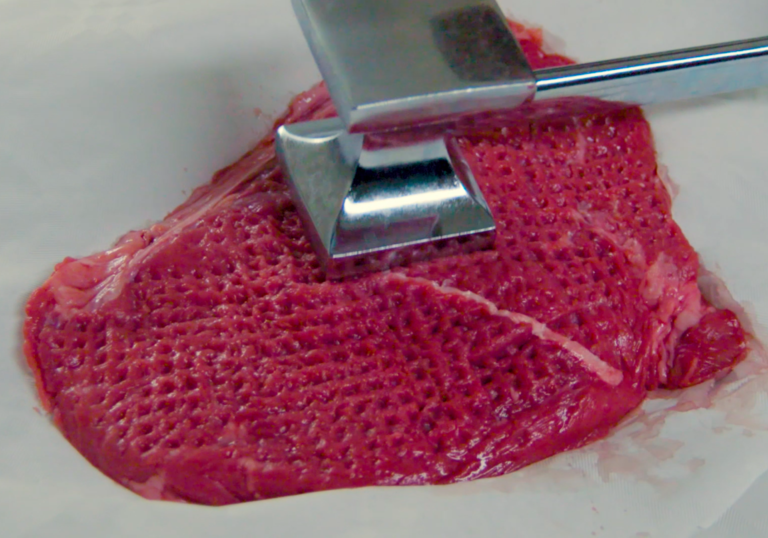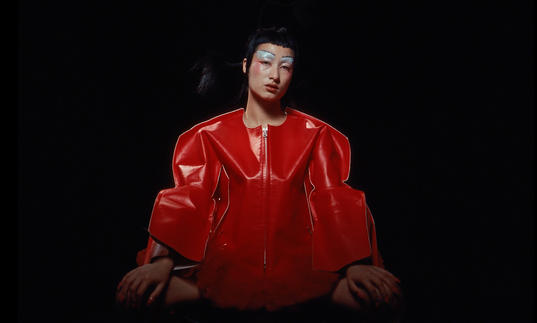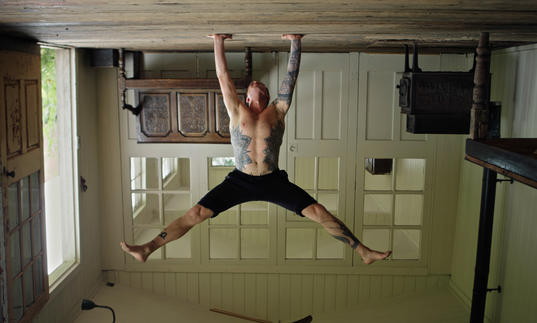Commissioned at the start of 2020 and produced throughout lockdown, Inside Out Shorts is a series of films exploring the relationship between our inner lives and creativity, produced in collaboration with The Smalls.
Can you introduce your film?
Damian is a love story; on the surface level between two men but on another level between one transgender man and all aspects of himself. It follows the title character who falls for a man he meets at a party with the cycle of this burgeoning relationship coinciding with his menstrual cycle. Just as love is as natural as eating food, so is the menstrual cycle, and this film depicts Damian’s navigation of all of these aspects of his life.
The commission was originally part of Inside Out, a season exploring our inner lives and creativity and how art can help us better understand ourselves and empathise with others’ experience of the world. How did your film respond to these ideas?
With ‘Damian’ I wanted to be creative with how we identify with the lead character through normalising his experiences. I wanted to explore the idea of a transgender man’s relationship with masculinity and how this aspect of himself doesn’t have to be compromised by mundane but heavily politicised bodily functions like periods. As a cisgender woman, I know how frustrating it can be to navigate menstruation without being able to discuss it openly and without being self-conscious, so how much more complicated must it be for transgender men who have periods? To get a sense of how normal this is, I wanted to embed the plotline of Damian’s cycle with two very normal and natural occurrences: eating and falling in love. I also wanted to speak to the idea of exploring our inner lives by not including any dialogue and letting each character’s inner dialogue be expressed without exposition.
Can you explain the process behind the making of your film?
Once I knew who my producer and DP were, we started casting. As the main character Damian is meant to be a transgender man, I was determined to find a trans male actor to play him so we were really clear about this in our casting calls. We had to rely on audition tapes and Zoom calls since we were on lockdown at the time but once we found our actor Kamari Roméo, we knew he was perfect. We struck gold twice when we found our supporting actor Alex J Taylor who is also trans but plays a cisgender man in the film. My favourite part of the process was preparing the actors for their roles. The film has no dialogue so it really relies on body language and facial expressions to get the story across. Part of that prep involved things like making fun little playlists or asking them to go away and watch different performances from actors who really nail the expressions I was going for with ‘Damian’. A huge part of the process was also putting together the colour palette both with food and costumes. Every outfit and food item was carefully selected to convey the right mood for every scene, from harmonious tones during the date scene with Damian and his love interest, to Damian’s friends’ palettes in the final scene which are meant to complement the tones of the Trans flag. All of these little details were so fun to bring together and a collaborative effort with our actors.
What impact did Covid-19 have on production? What was your experience creating a film in these strange conditions?
Filming during the pandemic meant having to make a lot of compromises on everything from location to the amount of cast and crew on set. Our main priority besides making a great film was making sure everything was done safely and in line with government guidelines – I don’t think I’d have been able to forgive myself if anyone had caught the virus while working on my set! Once we had our processes in place, things were a lot smoother than I thought it would be and everyone was just as committed as the producer and I when it came to safe (but enjoyable) shooting.
Film fans will be open to experimenting with new ways of enjoying film
What impact do you think Covid-19 will have on cinema in the near future – for audiences and filmmakers?
I think filmmakers will need to be more creative with the content they create. There’s no doubt that there’ll be isolation and pandemic-themed stories being told but even beyond that, I wouldn’t be surprised if films with smaller casts and more contained settings become the norm.
Audiences will need to adapt to experiencing film in different ways, not just streaming. I know industry concerns are that people won’t want to get out and see films but I’m optimistic. I think over time and as long as they feel safe, film fans will be open to experimenting with new ways of enjoying film whether that’s through drive-through cinemas or quirky little viewing pods or wherever!
